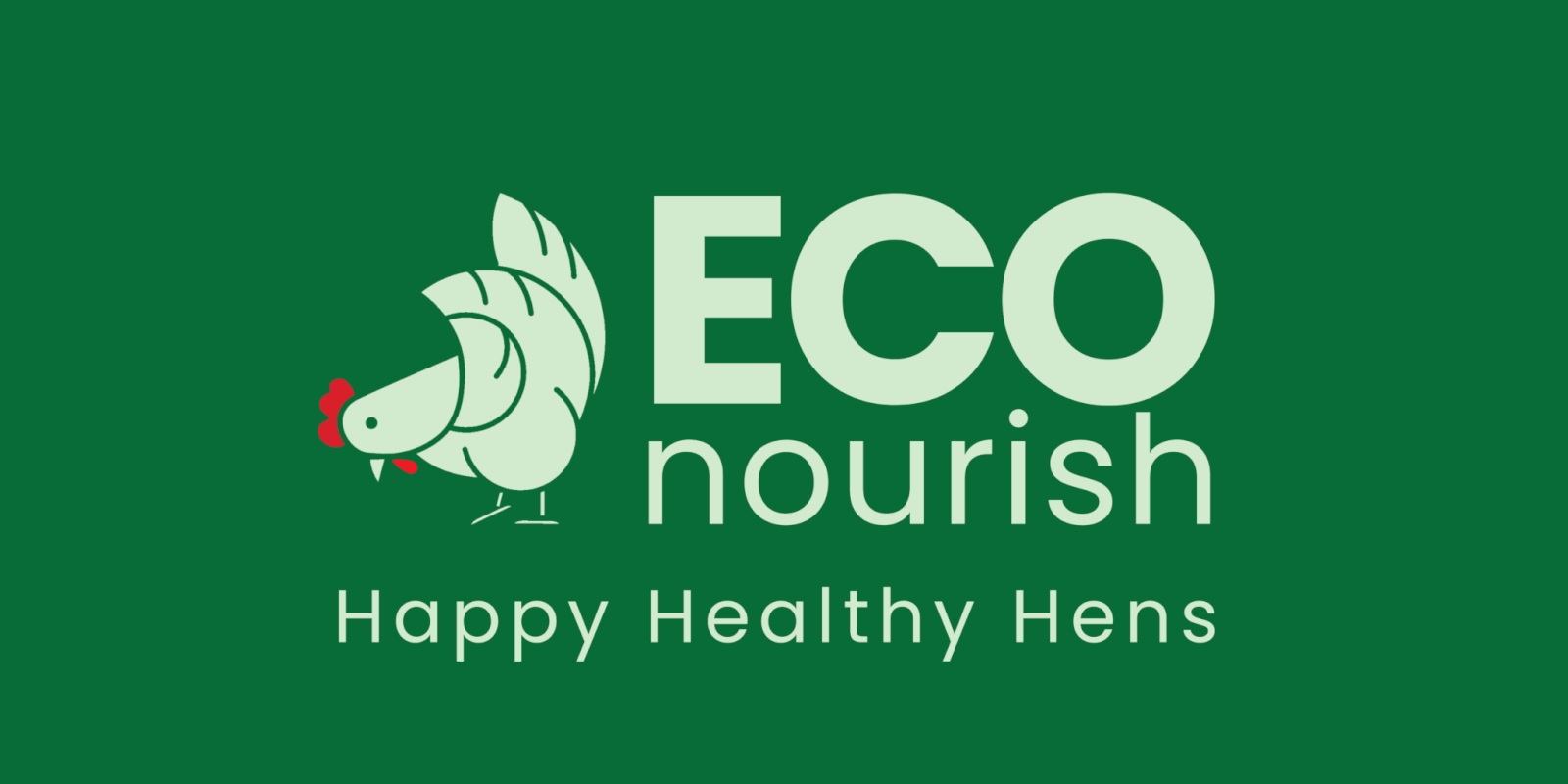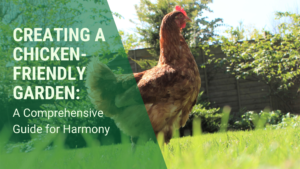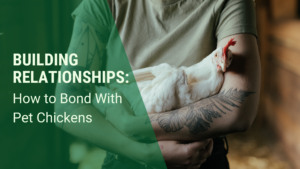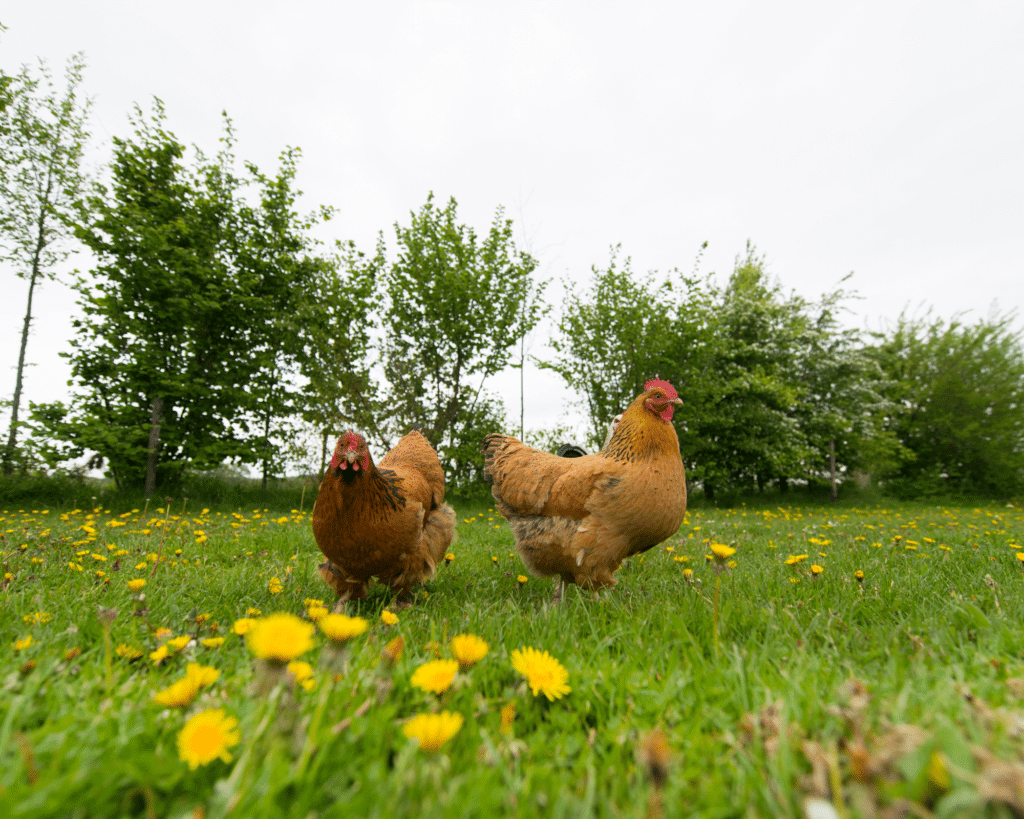
Keeping chickens is a true joy. But, it’s also a huge responsibility because although they’re often our pets, they’re truly “livestock”. As rewarding and entertaining as life with chickens is, you must also be prepared to wear many hats as a chicken keeper! Pet lover of course but also farmer, caretaker, trainee veterinary nurse… and all this needs a firm footing in ethical decision making.
We’ve often chatted about how hens make awesome family pets, transforming your garden into a lively feathery retreat and teaching young ones the nuances of compassion, environmental stewardship, and responsible living.
Ethics should be an omnipresent topic in chicken rearing. From how to care for them, whether to eat or sell their eggs, how to source them, how to feed them, how to rehome them, and how to handle illness. And ultimately, preparing for the heart-wrenching inevitabilities of nature’s cycle. It’s true – the path of livestock management is paved with topics and decisions that could seem daunting, especially when you adjust from a typical pet-caretaker scenario.
We forewarn you that some of the topics we discuss include disease, death and dispatching. You might find them upsetting – though they are uncomfortable, they are things we have to consider when taking on the responsibility of keeping chickens (even when we think of them and love them as pets).
Eggs: To Eat, To Sell or Return to Sender?
We recently talked about the ethics of egg production in a blog of its own! But he’s the sunny-side-up version – if your hens live like royalty, with comfy coops and room to roam, and they’re loved for more than their eggs, then we think enjoying their eggs guilt-free is a pretty doable ethical win-win.
If you’re selling them or giving them away, then legally you absolutely can! So long as you have fewer than 50 birds and you’re not grading them by weight or quality, or selling to shops, then you’re golden. And you get ethical brownie points if you donate the proceeds to a hen welfare charity, like The British Hen Welfare Trust.
But what if you’re vegan or don’t feel the egg-eating groove? Feed those splendid morsels back to your hens for the ultimate in recycling goodness. They get the benefit of replacing the protein and calcium taken to lay them.
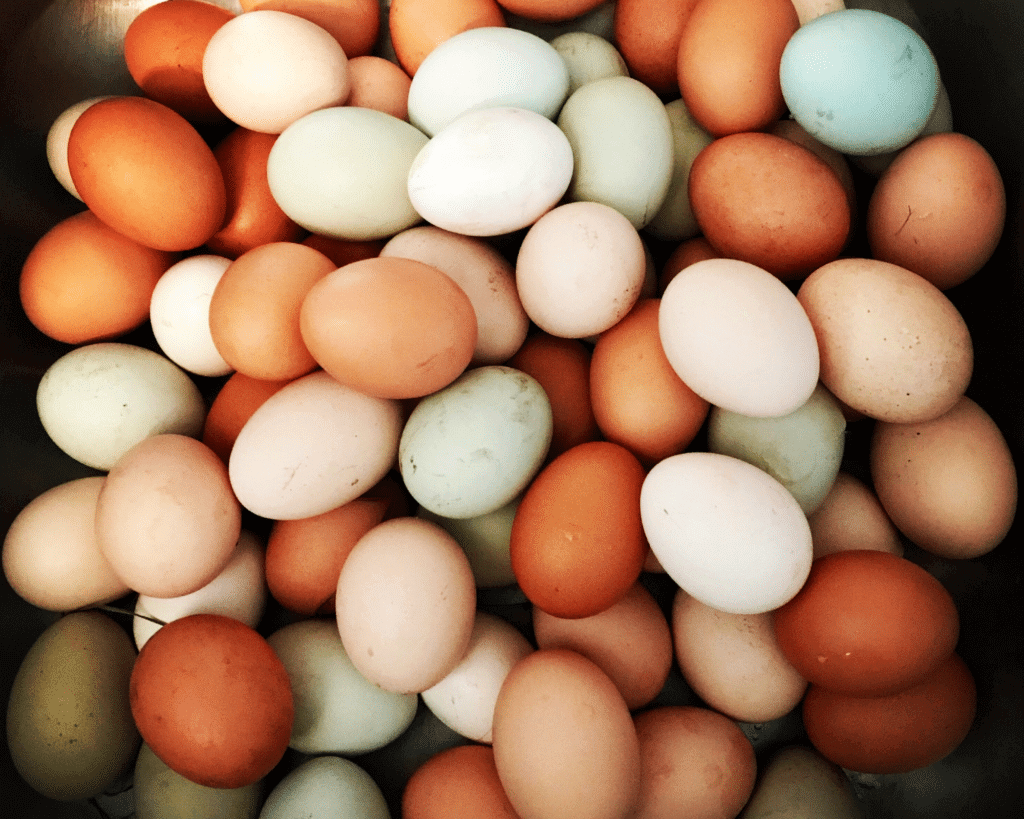
Many animal rights activists believe the eggs belong to the chickens and they are the only ones who should eat them. We like to focus on facts. Chickens don’t generally naturally eat their own eggs – so they’re absolutely not “critical” for them. And we don’t believe they mind at all that the eggs are gone if they’re not fertilised.
As we see it, appreciating eggs as a gift from your hens is not inherently unethical – but feeding them back to them if they would otherwise be wasted makes absolute sense. You’re welcome to your own ethical take on this, of course.
Food for Thought: Choosing the Right Feed
Nutrition is the secret sauce for raising the healthiest chickens But how do you make sure you’re choosing the best for them and the planet?
Opt for high-quality, life-stage-appropriate commercial feeds, preferably organic ones like Allen & Page or Marriages, as they are GMO-free and beneficial to the environment. However, no completely sustainable chicken feed exists in the UK due to soy-based or fishmeal protein sources.
DEFRA is exploring the use of dried insect protein in animal feed to improve sustainability. Until the law changes, going organic and replacing 10% of daily feed with live Black Soldier Fly larvae can minimise reliance on unsustainable protein sources.
Sourcing Your Chooks: Breeder, Hatch or Rescue
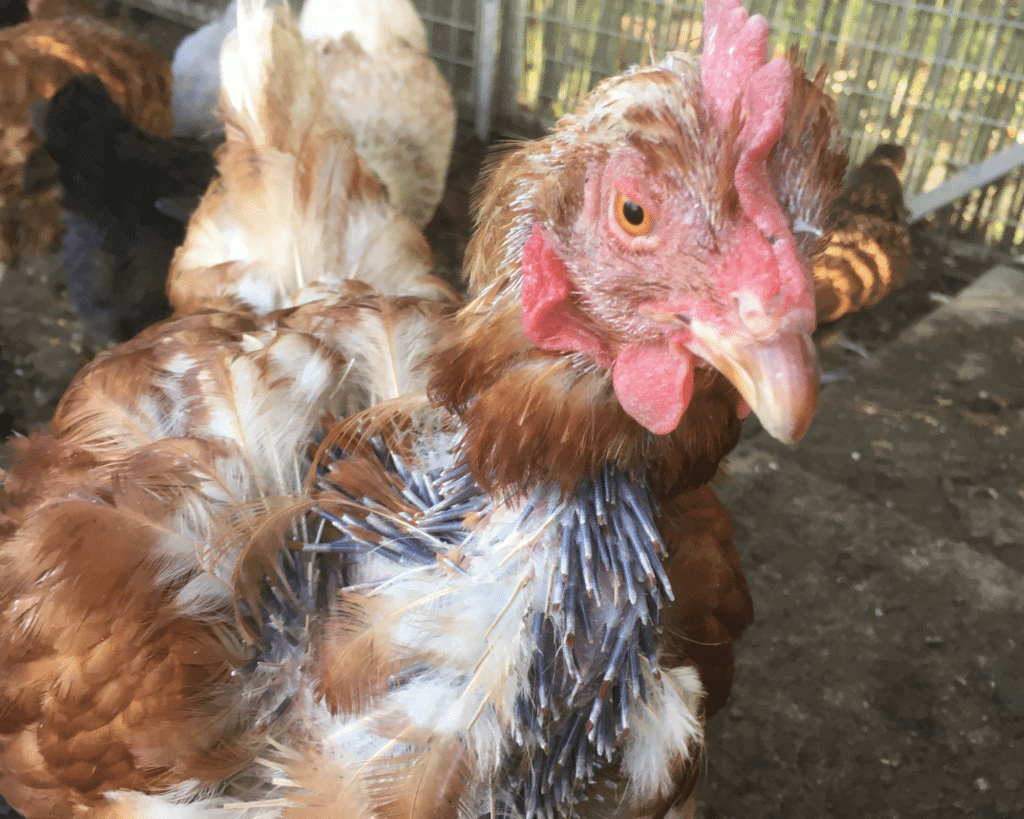
In an ideal world, all hens would get a second act in a cosy garden coop after their commercial farm debut. But, we get it – the heroes who rescue these ladies often have to tackle serious health and rehabilitation challenges. So rescuing hens is not for everyone and you must be totally prepared for the realities of it.
Rescue hens make wonderful, rewarding pets. But everyone has their individual reasons for getting into chicken-keeping, and this is fine.
You might be dreaming of a certain fancy breed sprucing up your coop, or taken with the particular characteristics of certain breeds (like fitting in with family life). Whether you’re looking to maximise space with petite bantams or hankering for nature’s egg-ceptional egg rainbow remember – finding the right breeder is the key to achieving your flock goals ethically. Selective breeding can create health issues, so pick wisely.
The chicken ethics scale isn’t a one-size-clucks-all affair, so admire and adopt your preferred buddy breeds guilt-free. The golden egg here? Always do your homework on your desired breeds and the breeders offering them.
Hatching Eggs
Hatching your own chicks can be truly rewarding. Go for it! But, remember it’s a lottery between boys and girls. Could you offer a home to more cockerels if they hatch? Do you have willing homes for them if you don’t? Are you prepared for what you would need to do if the answer to both of those questions is no? You have to be prepared and comfortable with the reality of hatching chicks. Many hatching eggs are pre-sexed – but it’s not an exact science.
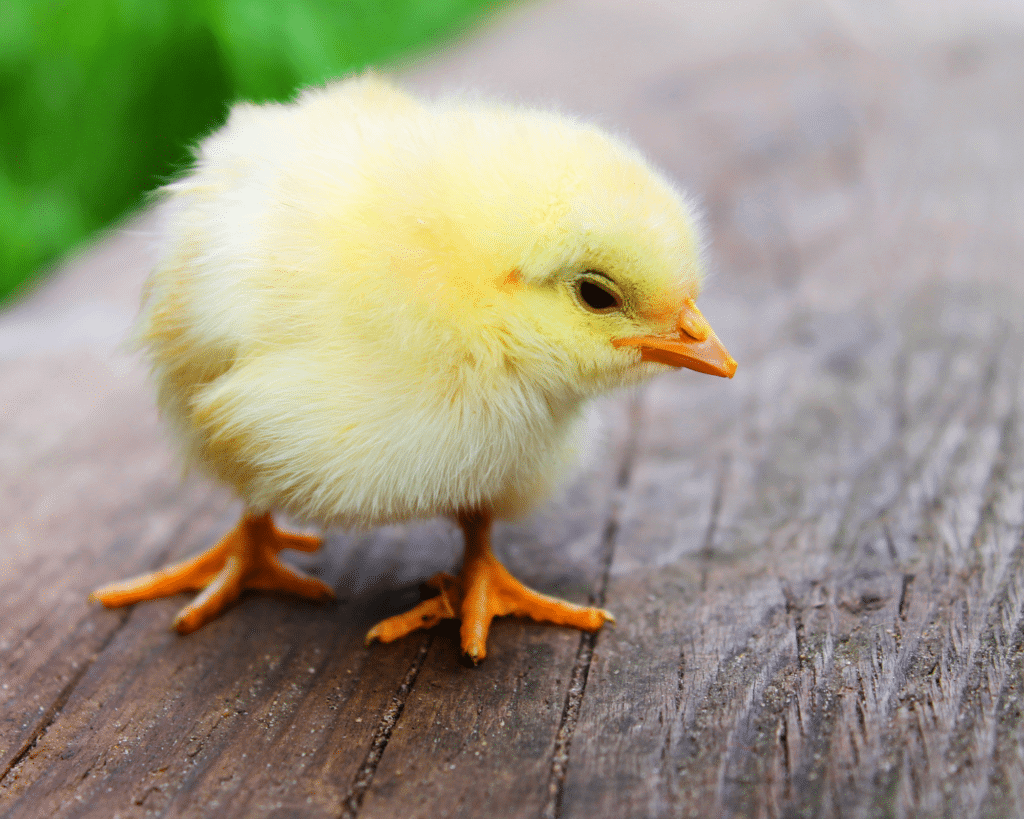
Disease Management: To Medicate or Not to Medicate?
Dealing with chicken disease is a fundamental part of keeping a healthy, happy flock. Antibiotic and other medication use is a controversial topic. But the key to ethical treatment lies in preventive care, rapid response, and always putting the chicken’s welfare first.
Antibiotics, though used overzealously in commercial situations, still have their place as life and suffering-saving interventions. If you cherish the “organic” badge for your egg bounty, antibiotic use could ruffle your feathers.
To navigate this maze, ponder over your priorities. If it boiled down to a life-saving intervention versus preserving the antibiotic-free status – what would you do? Such decisions echo past the individual bird, considering the ripple effects on your entire flock.
Local Wildlife: Friend or Foe?

Our chicken-keeping can ruffle a few local wildlife feathers in the process. What’s the key to harmonious co-existence? Sense and sensitivity.
Lock-tight, predator-proof hen housing is a must. And keeping feed under lock and key, too. But how far would you be willing to take pest and predator control?
If you’re looking for guidance, the Game & Wildlife Conservation Trust has a trusty five-fold mantra surrounding predator control: rational, achievable, proportionate, focused, and humane.
The key takeaway is that the first ethical principle is protecting your chickens, for whom you have direct responsibility. The second is to protect them whilst respecting local wildlife and ecological balance.
The Imposter Amongst Us: Awareness of False Labels
“Ethical” and “sustainable” claims can sometimes be more hen-hype than reality. Scrutinise labels, question marketing puff and educate yourself about the true implications of these terms. Known as “greenwashing”, environmental claims made by companies can be implicit or explicit. They can include words/statements, cleverly named products or imagery that implies they have environmental credentials beyond reality. Regulatory bodies are stamping out greenwashing, but it’s still easy to be duped. If, like us, companies are claiming to be “sustainable” or “eco” then this has to apply across the product’s full lifecycle, not just parts of it. For us, it definitely does. But we always recommend doing your homework.
End-of-Life Care: The Really Big Decisions
The bit nobody wants to think or talk about. How to handle end-of-life situations with your flock.
Whether it’s dealing in the kindest way possible with an untreatable illness, dealing with disease outbreaks in an entire flock, dealing with too many boys who don’t have homes to go to, or even what to do with your chickens once they’ve died – all chicken keepers will face this issue in one way or another.
For multiple reasons, it may become clear that the kindest action to take for a flock member or even an entire flock in the case of infectious disease outbreaks would be to put them down. The hardest thing about this is that it’s usually a decision made out of compassion and love for your flock and your responsibility for their welfare.
Your options include what’s known as “dispatching” at home in a quick, humane manner. Understandably, not every chicken keeper has the ability to do this. You may also call in veterinary support for humane euthanasia.
When looking after your flock after death, many chicken keepers aren’t aware that burying them is illegal. This is because, although they are our beloved pets, they are livestock. Cremation – whether at home or at registered animal crematoriums – is the preferred method of caring for a dead chicken. If you cannot bring yourself to do this and choose to bury them, be sure to do so very deeply and at least 100 feet away from any water’s edge and not in a place where their bodies could contaminate groundwater.
The Big Picture
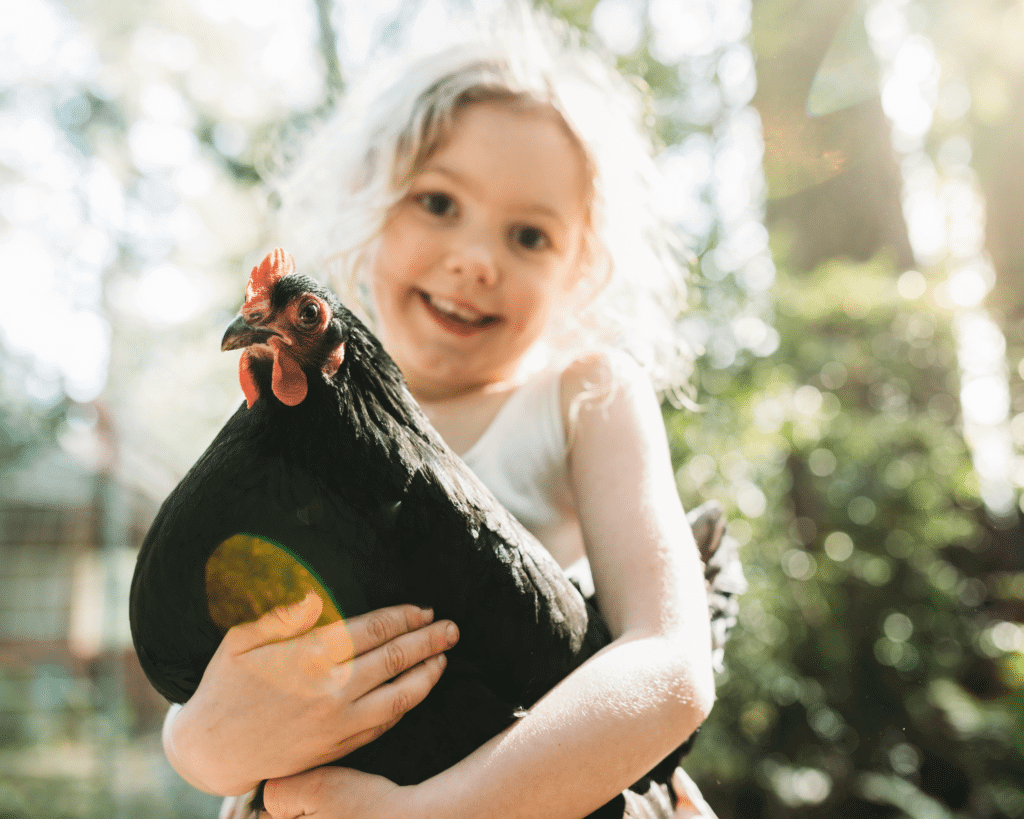
Feathering your nest with chickens is a joyous gig! It’s a wholesome adventure for you, a priceless lesson for the family, and a little high-five to planet Earth. But, remember, you’re standing at the crossroads of a clucking big commitment.
It’s important to consider the long-term consequences of your decision and the fact that keeping livestock isn’t always pretty before you decide to keep chickens. As well as looking after their health and welfare, it’s also important for chicken carers to ensure they are not in breach of any laws or regulations.
